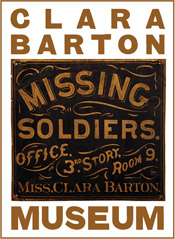Harriet (2019) Movie Review
Harriet Tubman stands as one of the most remarkable figures in American history. While her work helping enslaved African Americans escape to freedom, as a Union spy during the Civil War, and as an advocate for women’s rights are awe-inspiring, she has rarely been depicted in popular media. The 2019 film Harriet seeks to change that.
Director Kasi Lemmons largely succeeds in her effort to depict Tubman’s incredible life by deviating from the letter of history in order to capture the spirit of historical events. Harriet does a solid job of dramatically relating the events of Tubman’s life, and it gives an excellent sense of the complex world that African Americans had to navigate before the Civil War.
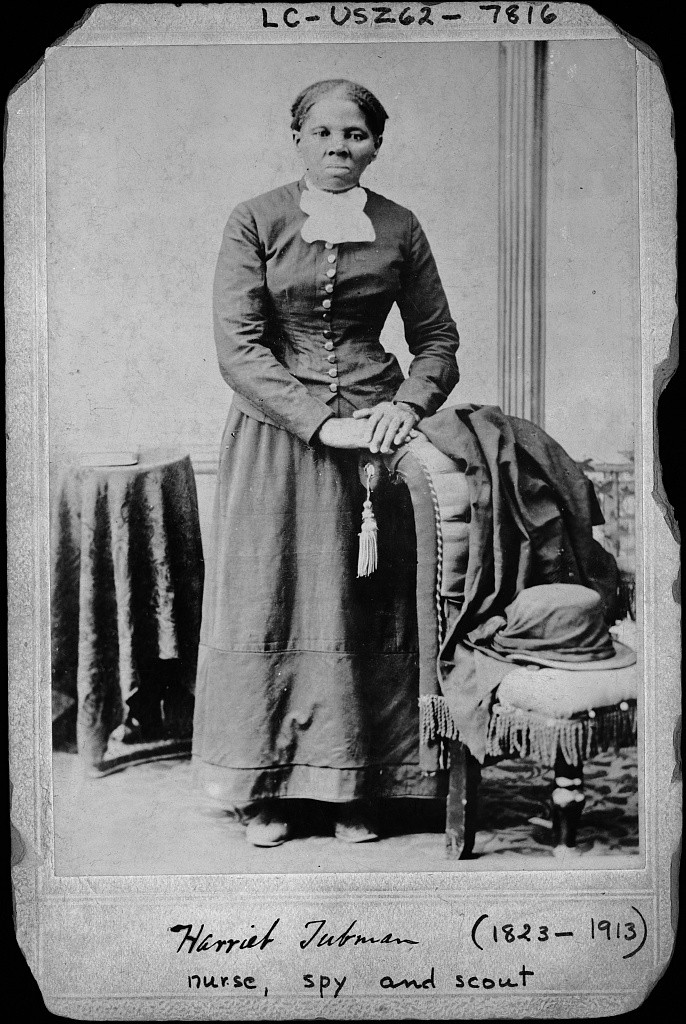
Harriet Tubman Courtesy of the Library of Congress
Harriet begins by hammering home the horrors of slavery, demonstrating how bondage dehumanized those trapped within it. Gideon Brodess, the fictionalized son of Tubman’s owner and the film’s main antagonist, makes the relationship between white owner and the enslaved population explicit by equating Harriet with a pig that is only raised to be eaten or sold. Gideon and his mother have a particularly disturbing conversation later in the film where they discuss their financial troubles. To alleviate their debt, they discuss selling one or two people as if the decision was akin to selling livestock.
Of course, we cannot say if those exact conversations happened, but we can be certain that the logic behind them (that slave owners saw enslaved African Americans as little more than dollar amounts) pervaded Southern society.
Though the camera does not depict beatings, whippings, or other examples of violence, threats of violence are ever-present and loom over every scene on the plantation. Even in scenes set in Pennsylvania, the audience is reminded at key moments of the intrinsic violence of slavery by seeing scars on formerly enslaved peoples’ backs.
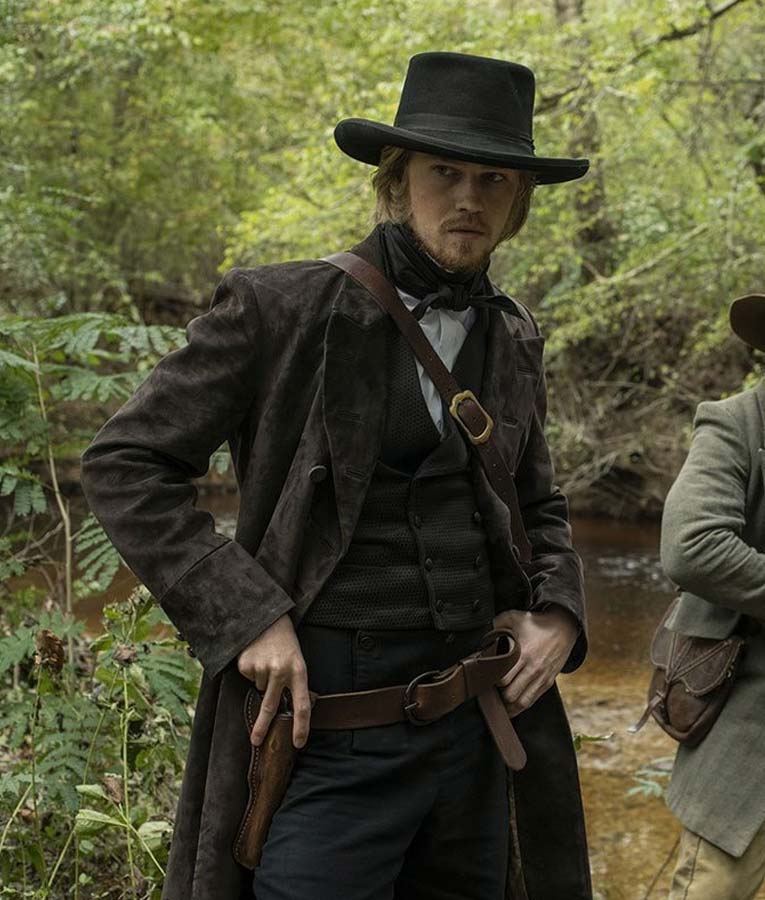
Harriet’s main antagonist Gideon Brodess
A significant moment in the movie comes with the passage of the Fugitive Slave Act of 1850. This statute nationalized the efforts of Southern slave catchers, allowing them to seize escaped enslaved African Americans even in free states. Suddenly places like Philadelphia (where Harriet initially settles following her escape from slavery in Dorchester County, Maryland in 1849) seemed much less safe than before the law’s passage.
In the film, utter pandemonium breaks out in Philadelphia the moment news of the law reaches the city. African Americans frantically pack to flee farther north, slave catchers begin stalking the city, and gunshots periodically ring out. That level of chaos likely did not happen, but it serves to capture the spirit of panic that spread among the free black community in the North in response to the Fugitive Slave Act.
The film leans heavily into Harriet Tubman’s spirituality – particularly her visions of the future which she credited God for providing. At a young age Tubman was hit in the head by a two pound iron weight by a wrathful slave owner, a head injury that led to her visions and to a life-long battle with fainting, headaches, seizures and other issues.
In the context of the movie they act as something of a “spider-sense” to help Harriet and her party of refugees avoid danger. To someone watching the film, the visions can seem like a convenient device to avoid confrontations with nearby slave catchers, but Tubman herself wrote about the visions and her experiences with God as being an essential component of her 13 trips rescuing over 70 people from slavery. Tubman clearly interpreted her daring exploits and success through a spiritual lens, so a story about her life has every reason to do so as well.
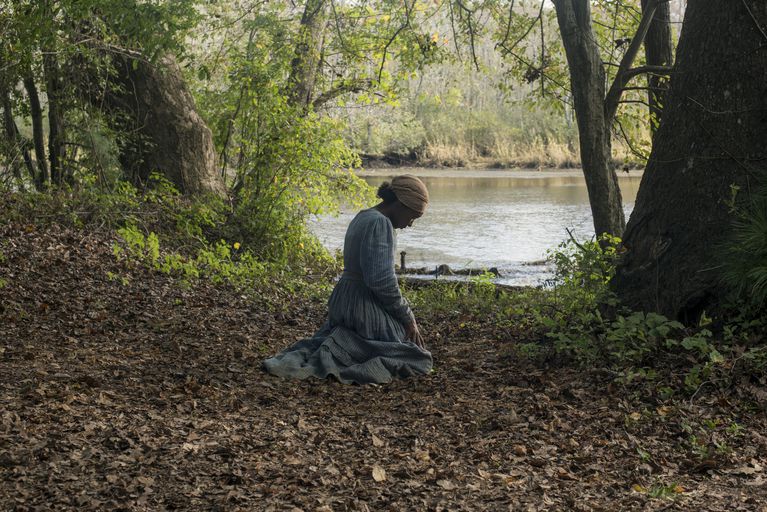
Harriet Tubman during one of her frequent prayers in the film
The film did an excellent job of portraying the complex landscape of antebellum Southern life. On several occasions Tubman, her family, and friends had to make hard choices about when, how, or even if they should flee slavery. When looking back at that horrific institution we can be tempted to see things through a binary either/or lens. If slavery was so bad why didn’t everyone either flee or resist in some way? Tubman’s father (a free black man) refused to flee with her several times so as to better watch over other family who remained behind. Tubman’s sister flatly refused to leave the plantation so as not to abandon her child, explaining that people who remain behind have to make similar appalling decisions every day to stay sane.
Along the same lines, two black slave catchers play a prominent role in Harriet. Motivated by that same pragmatic spirit to survive, stay sane, and carve out the best life they could (even at the expense of other African Americans in bondage) their actions feel especially egregious to us today. Their inclusion works to highlight how the system of racialized slavery impacted the entire society. Free blacks constantly lived in a tenuous place and sometimes had to resort to disturbing methods to maintain the ability to avoid bondage.
It is worth noting that the few notes of humor in Harriet are well-placed. In a film covering the somber topic of slavery, any misplaced jokes run the risk of cheapening the narrative; but here they serve to buttress the story and add just the right amount of lightness to what easily could have been an overwhelmingly bleak film.
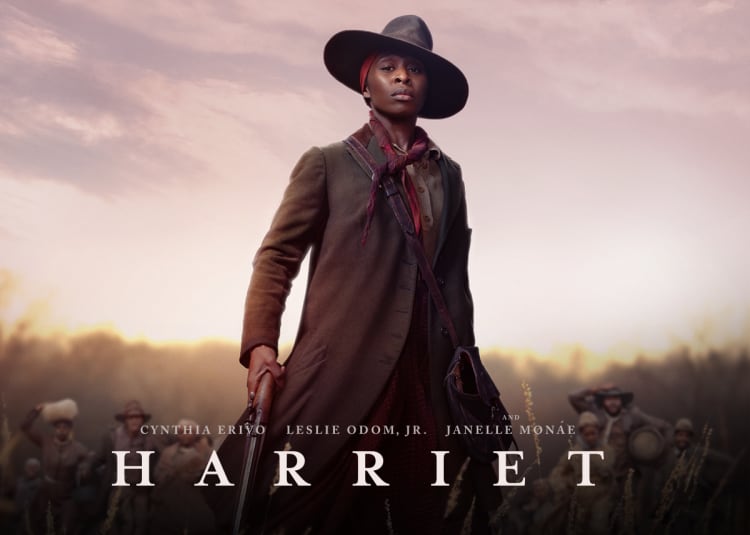
Promotional image for the film
Overall, Harriet represents a great cinematic arrival for a life as amazing as Harriet Tubman’s, but there are so many unexplored aspects of her life that were not shown. We only get to see just a few minutes’ worth of her Civil War activities (a topic which could fill its own film). The movie we have though, is a great first step toward making her legacy even more well-known. Hollywood has historically not dramatized the lives of notable women of history, much less African American women. By depicting the challenges and experiences of an African American woman like Tubman, Harriet adds another colorful thread to the tapestry of history that has been dominated by the white male experience.
I would rate Harriet 4 out of 5 stars. Absolutely watch it if you get the chance.
Want to learn more? Follow us on Facebook and Twitter to discover more stories from Civil War medicine!
Become a museum member and support our educational programs and research like this.
About the Author
John Lustrea is a member of the Education Department and the Website Manager at the National Museum of Civil War Medicine. He earned his Master’s degree in Public History from the University of South Carolina. Lustrea has previously worked at Harpers Ferry National Historical Park during the summers of 2013-2016.
Tags: Abolition, Abolitionist, Fugitive Slave Act, Harriet Tubman, Maryland, Movie Review, Philadelphia, slavery, Underground Railroad Posted in: Movie Review